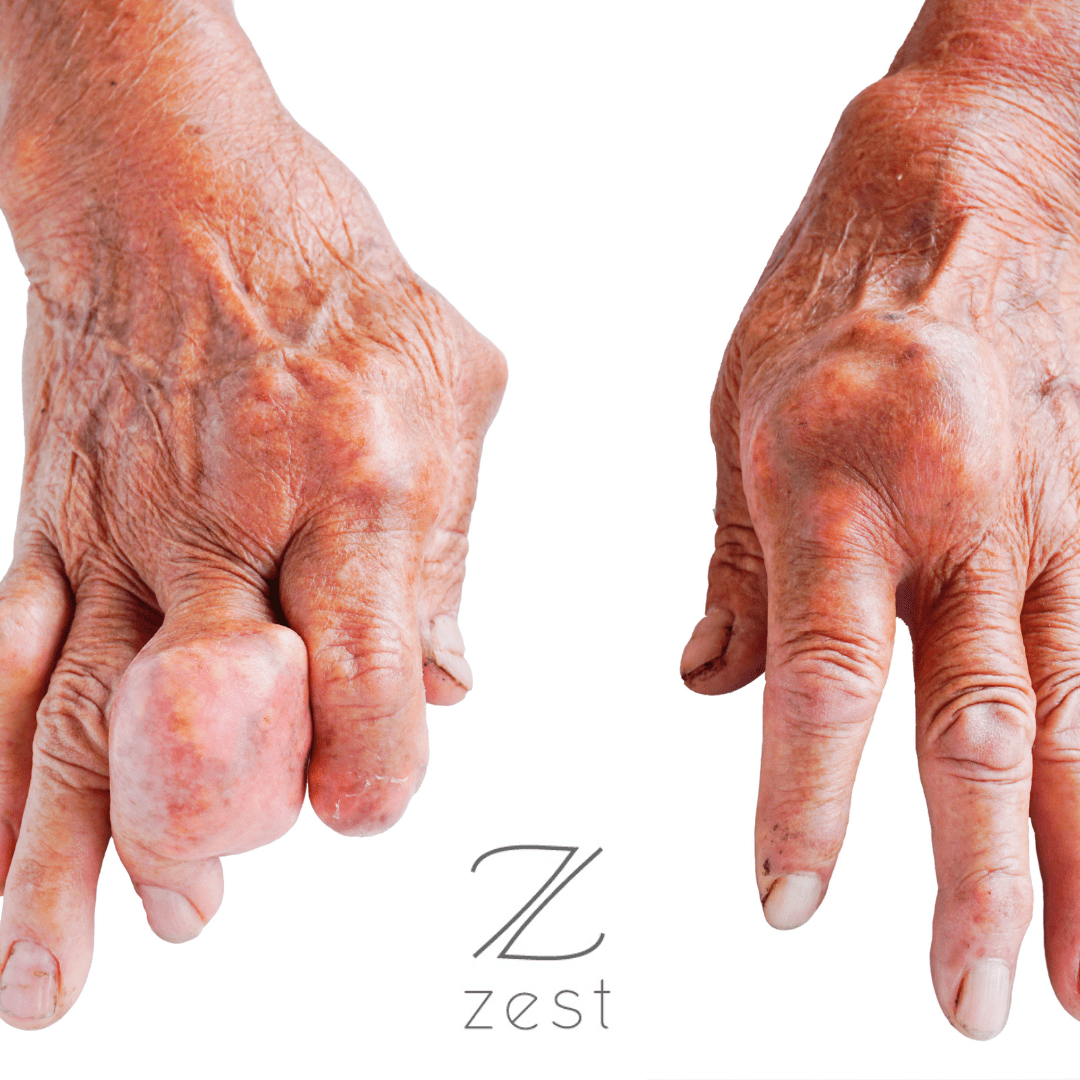Gout
Gout is a type of arthritis. It is inflammation of joints by uric acid crystals.
How do you develop gout?
- Our bodies naturally break down purines, producing a waste product known as uric acid.
- Purines are a type of protein found in some food we eat, and in all our cells.
- Humans are not very efficient at breaking down the chemical, uric acid.
- If we build up an excess of uric acid, and if present for long enough, it can form into needle-like crystals.
- The needle-like crystals can inflame joints causing severe pain and swelling known as gout.
The stages of gout
- High Uric Acid Levels: uric acid is building up in the blood starting to form crystals around the joint
- Acute Gout: Symptoms start to occur causing a painful gout attack
- Intercritical Gout: Periods of remission between gout attacks
- Chronic Gout: Gout pain is frequent and tophi form in joints
Symptoms of attacks
If untreated, a sudden attack usually lasts for one or two weeks. If you have had several untreated attacks, further attacks are likely to last even longer. The pain is likely to be most severe within the first four to 12 hours after it begins.
Where does it affect?
Gout usually affects the big toe, but it can occur in any joint. Other commonly affected joints include the ankles, knees, elbows, wrists and fingers.
Who gets gout?
1 in 200 people are affected by gout. It commonly affects older men rather than women,and can run in families too.
You can get gout if you have higher levels of uric acid in your blood than your body can remove.
- Why can I not remove uric acid?
- Your kidneys cannot efficiently remove uric acid
- You have a rare genetic abnormality
- Why is my uric acid increasing?
- Your diet and lifestyle
How does diet affect gout?
If you eat foods that are high in purines it can increase your uric acid levels by 5 times. This can increase your chance of suffering further painful attacks of gout.
Please find a great diet fact sheet put together by The UK Gout Society highlighting high purine foods to avoid, those to eat in moderation and low foods.
How does lifestyle affect gout?
High uric acid is found in other conditions as well as gout, including heart disease, diabetes and metabolic syndrome.If you are susceptible to gout then you may be to these other conditions. If you have gout, it is important to get the right treatment to relieve your suffering as quickly as possible. Please see your GP.
Podiatry Management
A podiatrist is able to:
- Discuss gout diagnosis, symptoms, treatment and management with you.
- Help alleviate pain by adapting footwear with orthoses or other appliances which can fit easily into your shoes and help redistribute pressure away from the affected parts.
- Advise on appropriate protective shields for your toes or padding to relieve pressure and reduce friction.
- Treatment and management of secondary problems like ulcers or corns.
- Refer to a specialist for more serious cases.
Treatments
Medicines to relieve pain and swelling:
- NSAIDS
- Colchicine
- Steroids
Medicines to help prevent further attacks:
- Reduce urate formation: Allopurinol, Febuxostat
- Uricosuric drugs: Sulphinpyrazone, Benzbromarone, Vitamin C
Help – I cannot have anything touching my gout
- Resting and elevate the affected joint
- Create a “bed cage” to reduce the weight of the bedclothes on the inflamed joint at night
- Duvets lighter than blankets or leave the inflamed joint exposed to the cool air.
- Ice therapy applied to the skin can also relieve pain OR place the painful foot in a very cold bath of water. Read our Hot & cold therapy article.
References


